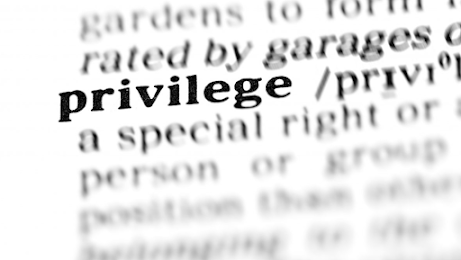Privileges and Licenses
If rights are anything a man can do without harming another man, what are benefits or privileges?
Privilege: "an ordinance in favour of an individual" (typically the exemption of one individual from the operation of a law), "privilege, prerogative" from privus "individual" + lex "law."
From c. 1200 as "power or prerogative associated with a certain social or religious position". Meaning "advantage granted, special right or favor granted to a person or group, a right, immunity, benefit, or advantage enjoyed by a person or body of persons beyond the common advantages of other individuals", "legal immunity or exemption."
So a privilege is something that grants exemption of the law, and because it is granted, it can be taken away. If the State grants the citizens benefits and privileges, is the State not allowing the transgression of the Law?
UK government has just announced that they are considering suspending certain human rights. They cannot be rights if they can be taken away, they are refering to statutory privileges. Rights are not in danger, they are inherent, and they are embodied by the (wo)man who knows who (s)he is in relation to the State.
License: c. 1400, "grant formal authorisation to do what would be illegal to do without it."
Therefore, a license is permission to do something under codes or statutes that has been deemed illegal, or that it is outright unlawful. These two examples explain the dynamic:
Is it unlawful to drive your own car in public? No, it is your inherent right and your own property. But it is made illegal unless you have a license (permission) to break the man-made "law". Then, by definition, driving a car is a privilege granted by the State to do something that would otherwise be illegal. Travelling is an inherent unalienable right of men, and thus it is completely lawful under Natural Law and no one can put a lien (contractual) on this particular right of men, unless men themselves agree to it.
Is it unlawful to cause harm to another man or woman? Yes, but it is perfectly legal if said man or woman agreed to it, for pleasure for example, and it is stipulated in a contract. That contract is then the license or permission to harm the man who consented to it. The licensed man was granted the privilege to do something that would otherwise be unlawful, but it is now perfectly legal. However, harming someone else will always be wrong and that is why it cannot be a right. In the same measure that it is wrong, it is also immoral because it will still be an attack on the man being harmed, even if he is the one demanding that harm to be done to him.
Legal is not lawful and legal does not mean moral because morality is not located in rules, regulations, norms, practices, individuals. When something is moral, it is beyond or in spite the norm, the regulation of that "something" is therefore self-evident.




Comments
Post a Comment